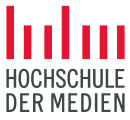Author: Jan-Niklas Tille
Unsafe Languages, Inadequate Defense Mechanisms and Our Dangerous Addiction to Legacy Code
Over the last 20 years, developing secure software has become increasingly important. To this day, we write a significant amount of code in languages with manual memory management. However, the Peter Parker principle states that “great power comes with great responsibility”. Many scoring systems classify, enumerate and rank prevalence of known vulnerabilities. In theory, developers…
